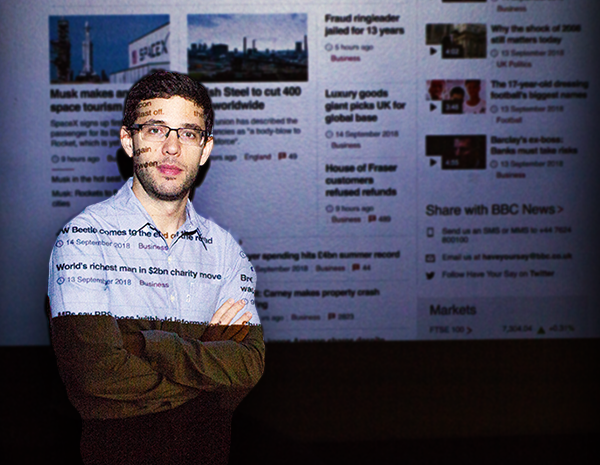Dr. Morales, you received your bachelor’s in Barcelona, finished your master’s degree in Berlin and received your Ph.D. in Hong Kong. What inspired you to come to Texas to be an assistant professor at the Valenti School of Communication?
I like the Valenti School because it is in Houston - a very diverse city. Plus, I like the weather here. I was in Hong Kong, and we also had long summers and really short winters. So I was ready to move to Houston to enjoy the warm weather again.
What classes do you teach here?
I teach Multimedia Journalism for the undergraduate level and Issues in International Mass Communication Research for the graduate level. We study how people in South America watch Korean soap operas, how communication is different throughout countries and cultures with a contemporary look on issues. I used to work and live in Kenya and many people there watch Filipino TV shows, and I was amazed. Anyone who is interested about how communication flows around the world should take the class.
Listen to radio. Get in to internships. Get exposed to different types of media because there are always things to learn in everything you do.
Describe your teaching style of in a few sentences.
I am very technology-oriented. In my class, we use a lot of digital tools. I like to have students use their phones in class to do some assignments (but not Facebook or social media) and generally I like students to get comfortable with technologies. That’s a very important part for future journalists.
What has inspired you throughout your education and career path?
I am going to be old-fashioned here: my inspiration is my parents. They are really hard working and have made a lot of sacrifices for me to study. That is a strong striving for me to keep in mind everyday.
Why did you choose this field of study?
I wanted to be a journalist when I was little. I was a journalist for 10 years. After a while of doing my job, I thought of academia as a way to learn new things and teach students what I know about journalism.
If one of your students said to you: ”I don’t get it.” What would you respond?
Actually, I hear that every often. What I do all the time is try to provide a different example. Most of my classes are very hands-on in practice. We learn to use some software and I usually spend some time showing the class how to deal with different technologies.
What is the first thing you do to get inspiration when you get up in the morning?
I tell my Google Home, “Hey Google, play some music!”
"...my inspiration is my parents. They are really hard working and have made a lot of sacrifices for me to study. That is a strong striving for me to keep in mind everyday."
What advice do you have for our communication students?
I’d say number one: be curious. No matter what field of communication you are in, curiosity is something that is always going to help you to improve yourself. Second advice, don’t be afraid of learning new things. If you get stuck in today, you are going to get lost ten years or maybe twenty years later. If you asked any journalist ten years ago, they would not even know what Photoshop is. It is important to be flexible.
What has been your favorite moment as a professor up to this point?
It was during a time I was in Barcelona, my students gave me a goodbye card on the last day of class. I was not expecting it, but it was a nice moment.
Tell us a story that you are most inspired by?
I was sent to East Timor for work in 2006. They were recovering from a long civil war. I met a lot of people and it was the first time for me to go to a country that just stepped out of armed conflict. That was a really eye-opening and empowering in the sense of understanding people and their stories as a journalist.
What are some career tips you give to journalism newbies?
The best thing to learn is to look at what other people are doing. Listen to radio. Get in to internships. Get exposed to different types of media because there are always things to learn in everything you do.
If you could say one thing to yourself, from back then when you were a student, what would you say?
Be humble. When you are young, you feel like you know everything and you think you are a grown up. There is so much more we need to learn. When I first got into newsroom, I had a lot of conflicts. Looking back, I would tell myself back then to listen more and to learn. If someone has been doing the job for years then they must know what works and what does not.
If you can only bring one thing to class with you, what would it be?
My laptop. My laptop is my life. I store everything online because I move so much from one place to another. I also keep copies and backups everywhere.

